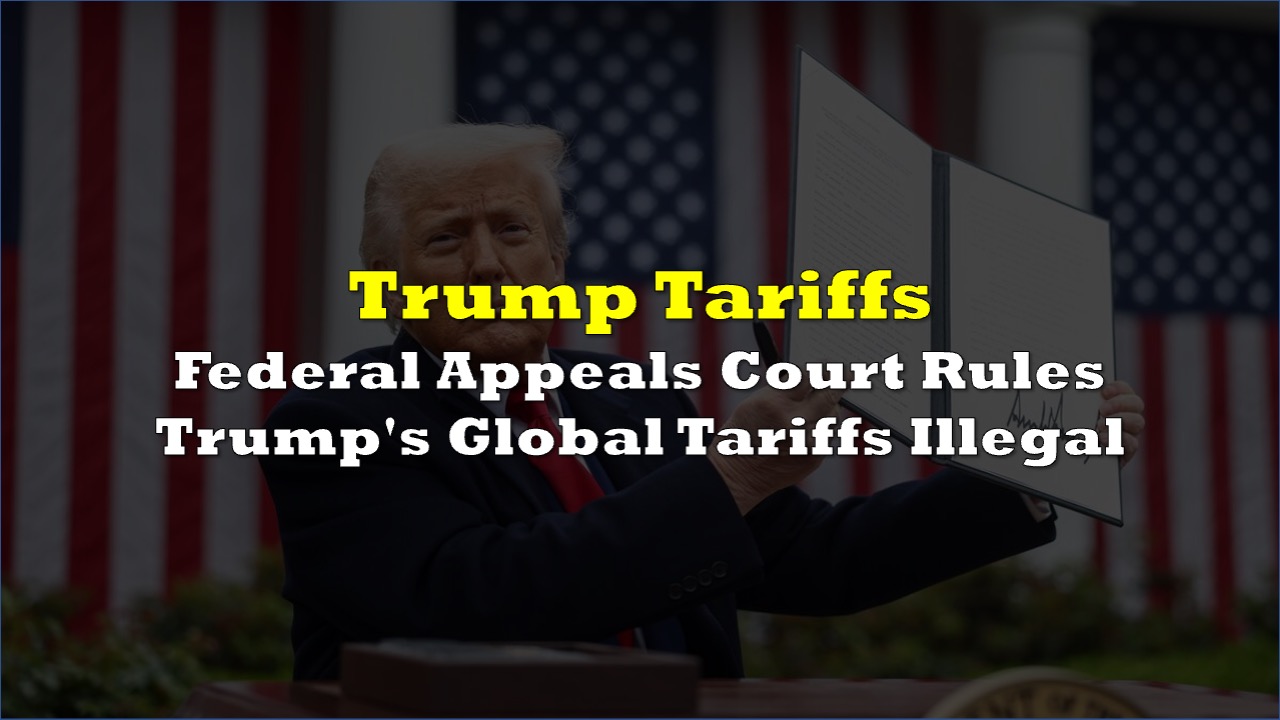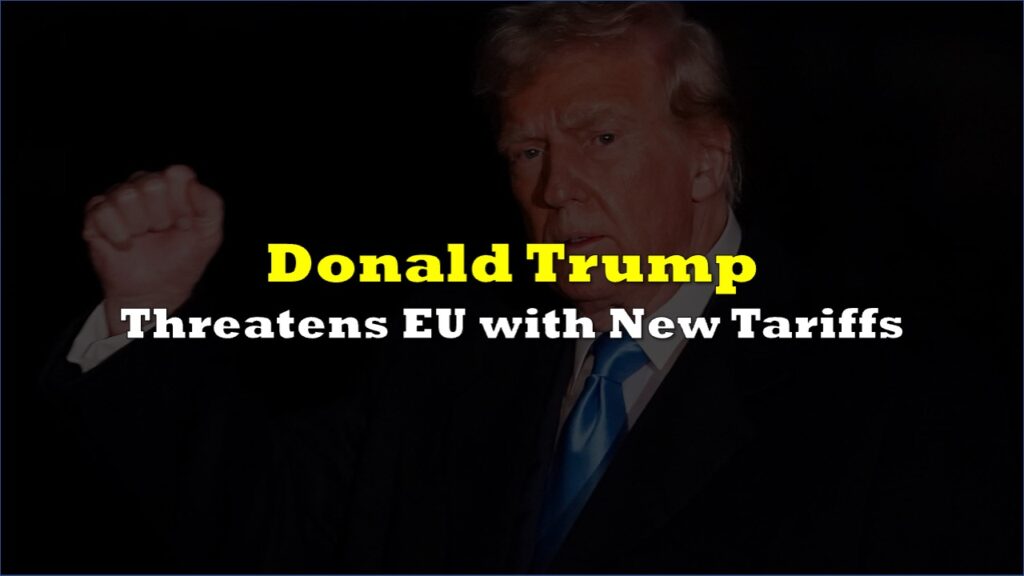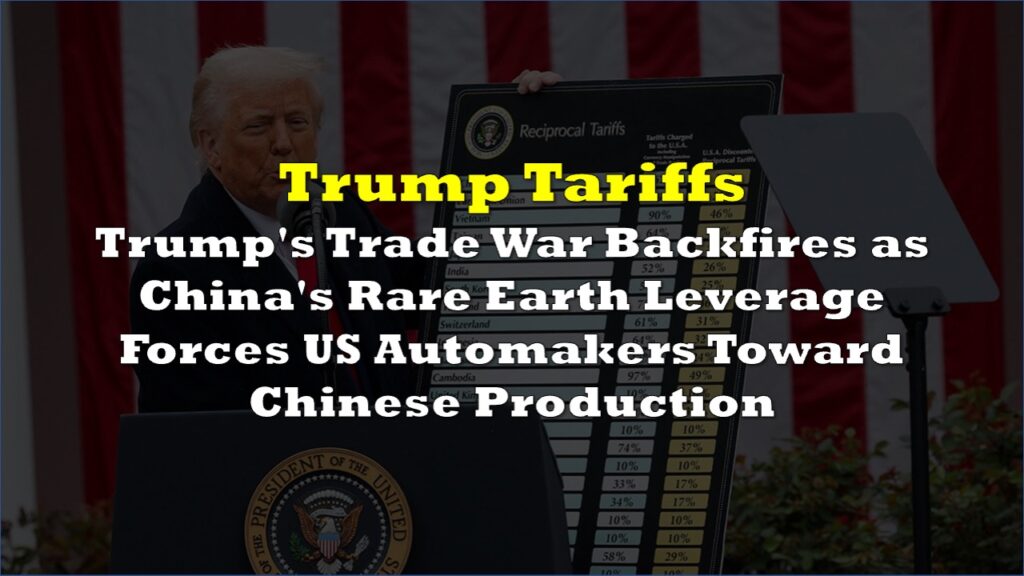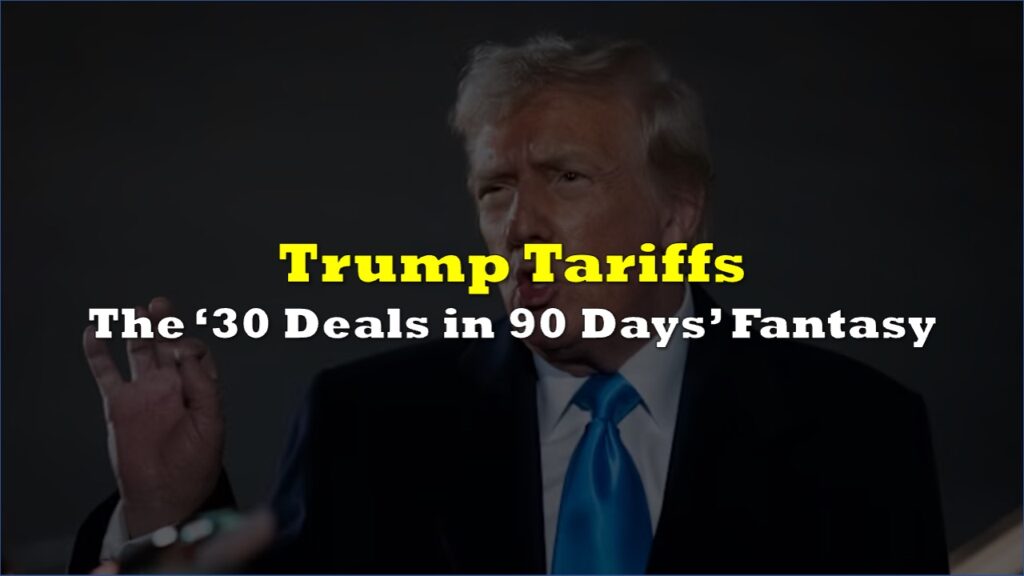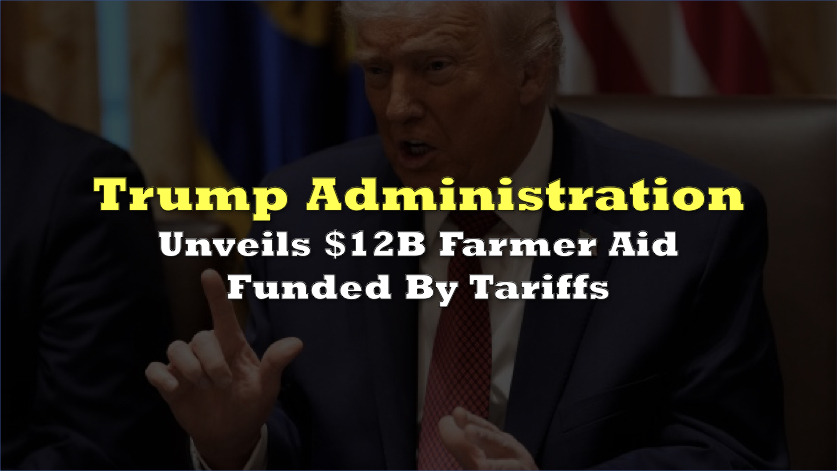A federal appeals court ruled Friday that most of President Donald Trump’s sweeping global tariffs are illegal, finding the president exceeded his authority by using emergency powers to impose the trade barriers that have reshaped the US economy and triggered international retaliation.
The US Court of Appeals for the Federal Circuit upheld an earlier ruling that Trump wrongfully invoked the International Emergency Economic Powers Act to impose tariffs on dozens of trading partners worldwide. However, the court allowed the tariffs to remain in effect while the case proceeds, likely to the Supreme Court.
The 7-4 decision strikes at the heart of Trump’s trade agenda, which has brought the average US tariff rate to 27% — the highest level in over a century. The ruling affects the “reciprocal tariffs” Trump unveiled in April, including a minimum 10% levy on nearly all imports and higher rates for countries with large trade surpluses with the US.
Trump responded defiantly on Truth Social, writing “ALL TARIFFS ARE STILL IN EFFECT!” and calling the court “Highly Partisan.” He said his administration would seek Supreme Court review to preserve what he considers a cornerstone policy.
Read: How Tariffs Became the US’s New Swiss Army Knife
The tariffs have generated an estimated $172 billion in federal revenue this year, making them the largest tax increase since 1993, according to the Tax Foundation. But economists warn the costs far outweigh the benefits, with Penn Wharton projecting the policies will reduce GDP by 8% and wages by 7% while imposing a $58,000 lifetime cost on middle-income households.
The trade barriers have also sparked extensive retaliation. US tariffs on Chinese goods now reach 145%, while China has responded with 125% tariffs on American products. The European Union, Canada, and other partners have imposed counter-tariffs affecting $330 billion in US exports.
Related: Tariffs Yield Record US Revenue, But Who Will Pay For These?
Major US retailers have warned Trump that the escalating trade war could lead to product shortages and visible price increases for consumers within weeks.
I told you so. https://t.co/RPhrZlPVa5
— Peter Schiff (@PeterSchiff) August 29, 2025
The legal challenge centers on Trump’s use of emergency powers typically reserved for national security crises. The administration declared that large trade deficits constitute a national emergency justifying the broad tariff authority, an argument the courts have repeatedly rejected.
The ruling does not affect tariffs imposed under other authorities, including existing duties on steel, aluminum, and specific Chinese goods. Those levies, totaling hundreds of billions in trade value, remain fully in effect regardless of the appeals court decision.
The case now heads toward the Supreme Court, where the Trump administration must decide whether to seek review.
Information for this story was found via the sources and companies mentioned. The author has no securities or affiliations related to the organizations discussed. Not a recommendation to buy or sell. Always do additional research and consult a professional before purchasing a security. The author holds no licenses.

